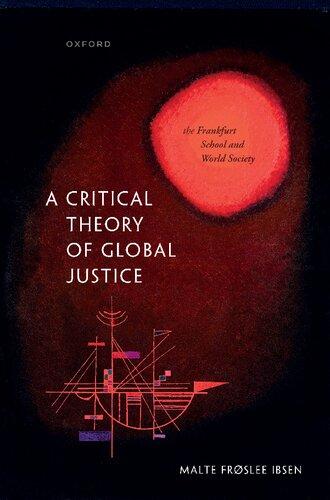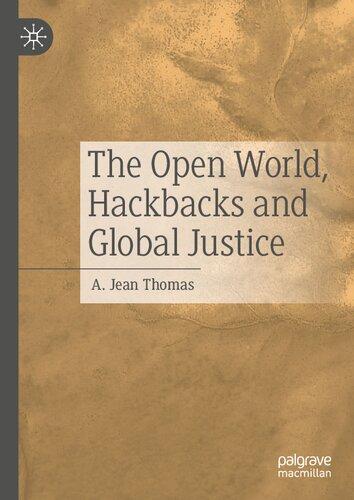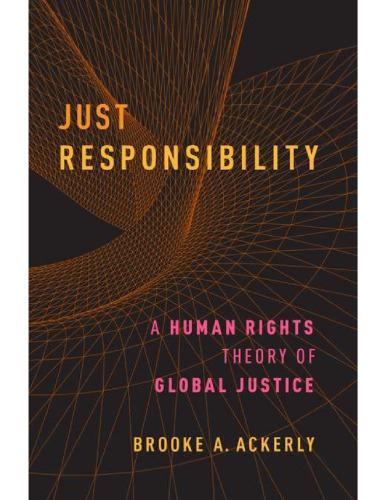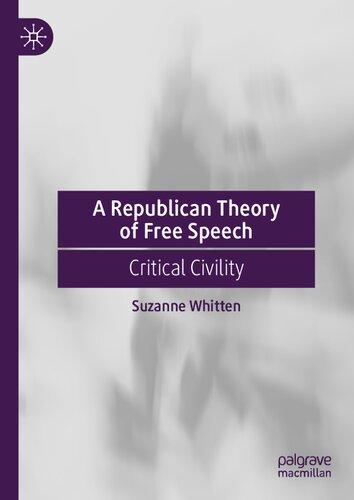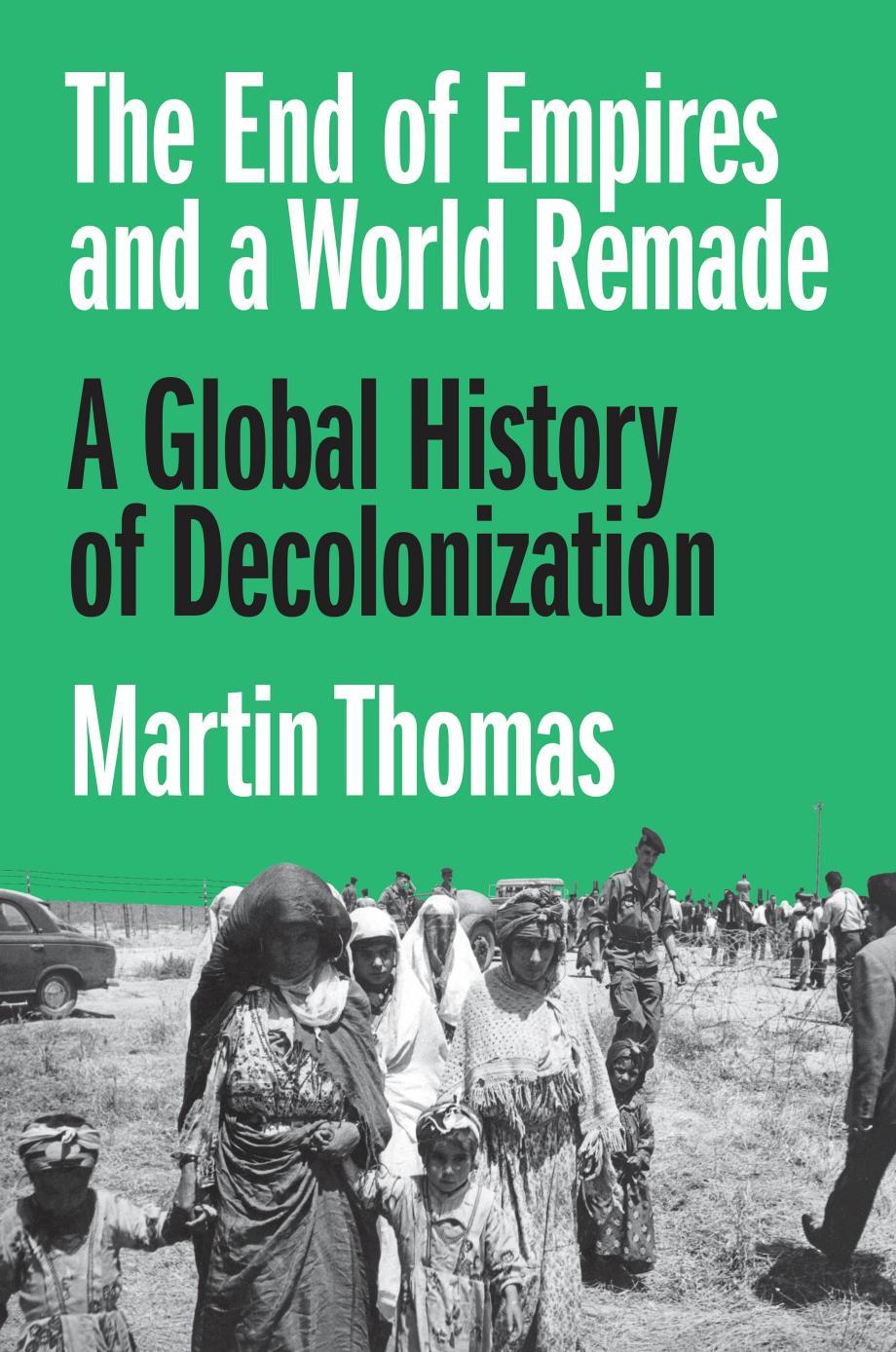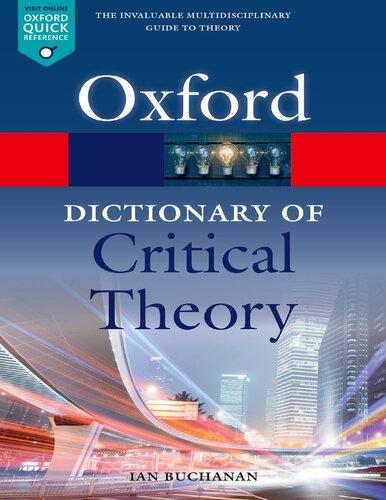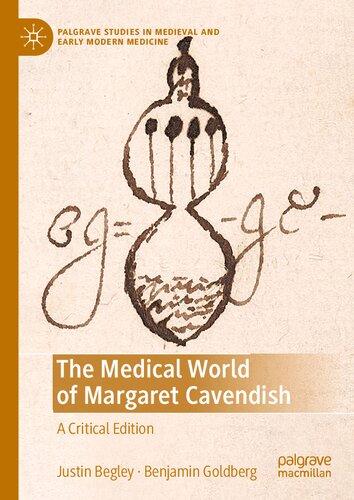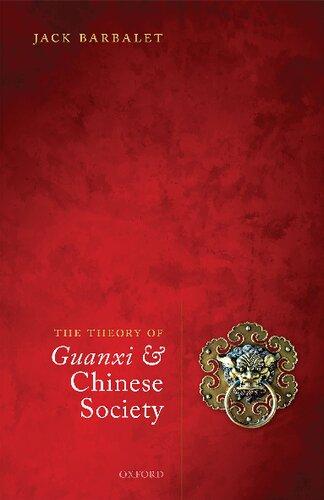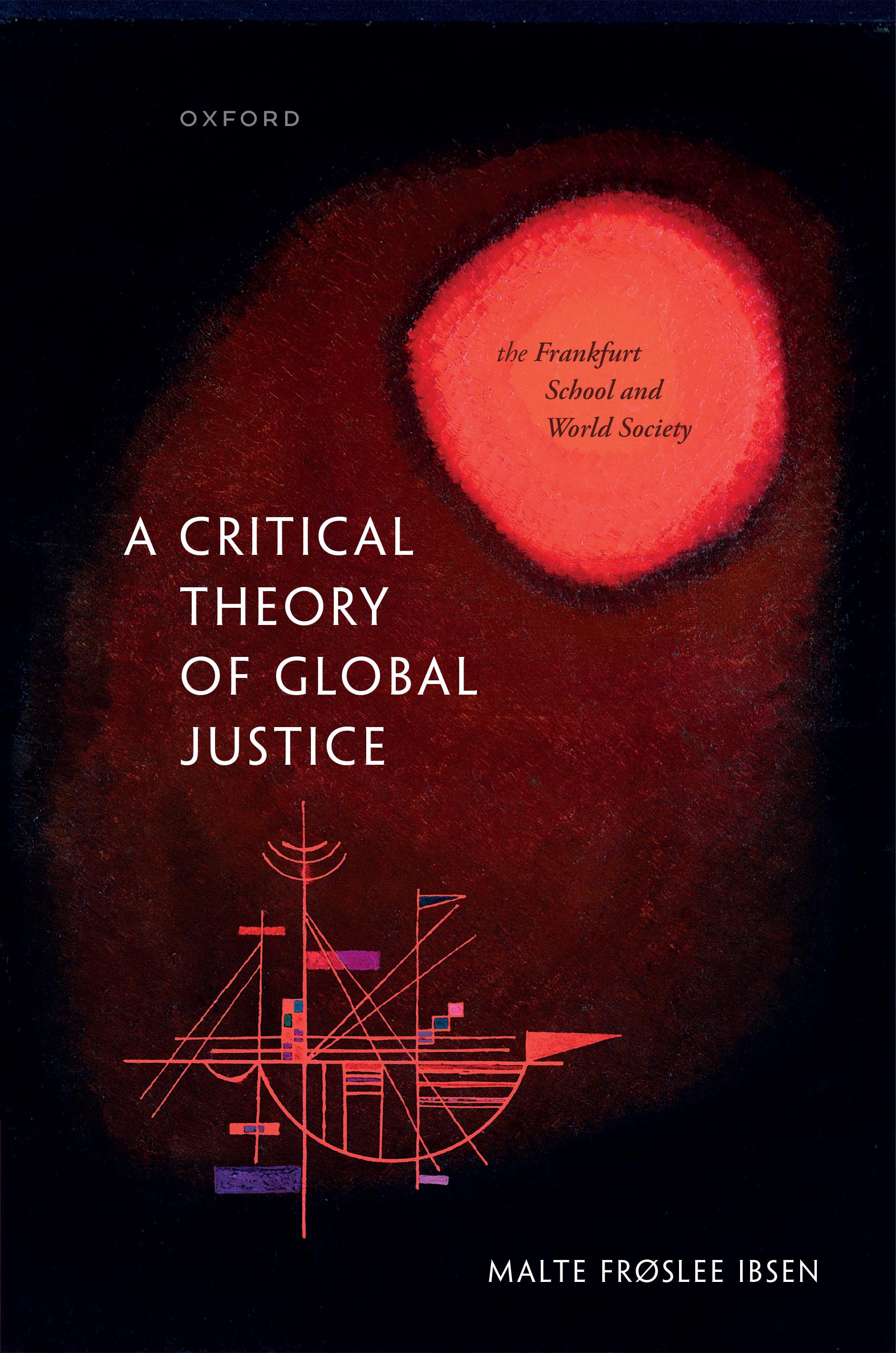Acknowledgements
Writingthisbookhasbeenafantasticvoyage.Ithasspannedtenyearsofmylife,in whichIhavehadtheprivilegeofcallingFrankfurt,Berlin,NewYork,andCopenhagenmyintellectualandphysicalhome.Lookingbacknow,itiscleartomethat theimpetusforwritingthisbookisultimatelyrootedinthehistoricalexperienceof the2008financialcrisis,whichnotonlysentshockwavesthroughtheglobaleconomybutalsorattledmeoutmyowndogmaticslumber,rippingoffmypersonal veilofignorancetoexposetheirrationalityandunreasonablenessofthisworldof financializedglobalcapitalism.Thebookwasfinishedamidstanewglobalcrisis, theCOVID-19pandemic.Tome,bothoftheseglobalcrisisexperienceshaveonly servedtoaccentuatetheacuterelevanceandimportanceofthebook’sundertaking. Ihopeothersmayfeelthesameway.
Manytravelcompanionshavejoinedmeonthisvoyage,morethanIcan remember,andmanyofwhomhavecontributedincrucialwaystomyintellectualjourneyandthelifeofthisbook.Thebookbeganasadoctoraldissertationat theGoetheUniversita¨tFrankfurt,writtenunderthesupervisionofRainerForst andAxelHonneth.Rainerhasbeenatrue Doktorvater intheemphaticsenseof thatGermanword.HebelievedintheprojectfromthefirsttimeImethimata conferenceinLondon,andhehasofferedinvaluableintellectualguidance,friendship,andsupportthroughoutthewholeprocess—ashehascontinuedtodoafterI leftFrankfurtin2016.Thisexpressionofgratitudeseemswoefullyinsufficient,but Iofferitnonetheless.AxelHonnethnotonlyofferedhisunsurpassedknowledge intotheFrankfurtSchooltraditionofcriticaltheoryduringsupervisioninFrankfurt,butalsokindlyextendedaninvitationtothePhilosophyFacultyatColumbia Universityinthefallsemesterof2016,whereourlongtalksprovedimmensely helpfulforthesubsequentcomprehensivereworkingofthedissertationintoa bookmanuscript.IalsowanttothankJu¨rgenHabermas,whoonseveraloccasions inHeidelbergandFrankfurttooktimetodiscussthedissertationwithme—and offeranecdotesaboutAdorno.Heremains,inmanyways,mygreatintellectual hero,andIamgratefulfortheprivilegeofpersonallyexperiencingthemagnetic auraofourgreatestEuropeanthinkerandintellectual,alivingembodimentofthe postwarhistoryofWesternphilosophy.
Imustextendaspecialdebtofloveandgratitudetothreedearfriendsandintellectualtravelcompanions,whohavemadeaninestimablemarkonmythinking sinceourOxforddays—TheresaClasen,JeffreyHoward,andTobiasBerger— aswellastoAndersDahlSørensen,whohasbeentheclosestoffriends,a
ACKNOWLEDGEMENTS vii non-metaphoricaltravelcompanion,andanintellectualinterlocutorsincehigh school.IamalsogratefultotheoldFrankfurtcrowd,especiallyJohannesSchulz, DorotheaGa¨deke,JulianCulp,Arvi-AnttiSa¨rkela¨,CasperMo¨lck,EstherLea Neuhann,MariusPiwonka,PhilippSchink,TamaraJugov,FedericaGregoratto, DarrelMollendorf,MartinSaar,ThomasBiebricher,andTitusStahl,forintellectualstimulusandfriendshipalike.
IthankNealCarrier,NavidPourgazi,DespinaPotari,MatteoGaravoglia, ChristianSchemmel,DavidAxelsen,DitteMariaBrassoSørensen,RuneMøller Stahl,SiriRanvaHjelmJacobsen,TiagoRito,PoyaPakzad,andEmilyHertzfor helpingme,invariousways,alongtheway.IalsothankChristianRostbølland LarsTønder,whoreadandcommentedonpartsofthebookmanuscriptand offeredhelpfuladviceonpublication.EmmaHoltenhasbecomeadearfriend andcomrade,whoreadandcommentedontheentiremanuscript—tak!Dominic ByattatOxfordUniversityPresshasbeenthekindofeditoryouhopeforbutdon’t dareexpect.Ithankhimforhisenthusiasticsupportfortheprojectandforhisgraciousandprofessionalsheepherdingofthisbooktopublication.Ialsothanktwo anonymousrefereesforOxfordUniversityPress,whoseprescientcriticismsvastly improvedthemanuscript.
Iadmittosometimeshavingfearedthatthisfantasticvoyagewouldturntoerosionandnevergetold—toparaphrasethegreatDavidBowie.Thefactthatithas cometolifeisnosmallpartduetotheunwaveringloveandsupportofmyfamily: mysisterSiriandmymumanddad,Anne-MetteandBjarne.Alongthisbook’s journey,Iexperiencedthesecularmiracleofbecomingafathermyself,firsttomy daughterFridaandsubsequentlytomysonFinn.Frida’sandFinn’spresencein thisworldandfutureontheplanethasgivenaconcretemeaningtothefearsand hopesembodiedinthiswork.Finally,mygreatestdebtofgratitude:Foryourlove andcompanionshipinlifeandletters,foryourunyieldingsupportandsacrifice inallowingmethespacetoworkendlesshoursonthisproject,forhavinggifted meour tosmåmuler,foryourforgivenessofmyfaults.Thisbookisforyou.
PARTI.HORKHEIMER
1.MaxHorkheimerandtheOriginalParadigmofCritical
2.Horkheimer’sOriginalParadigmandtheIdeaofaCritical TheoryofWorldSociety
2.1‘Existingcapitalistsociety,whichhasspreadalloverthe worldfromEuropeandforwhichthetheoryisdeclared
2.1.1Colonialism,Empire,andtheTrappingsofHistorical Materialism
2.1.2Pluralism,PoliticalEconomy,andtheRiseof Right-WingPopulism
2.1.3Emancipation,Ecology,andtheMasteryofNature
PARTII.ADORNO
3.TheodorW.AdornoandtheNegativistParadigm ofCriticalTheory
3.1ReflectionsfromaDamagedLife
3.2.2MythisalreadyEnlightenment
3.3APhysiognomyofLate-CapitalistSociety
3.3.1TheAdministeredWorld
3.3.2Ego-WeaknessandtheUniversalSystemofDelusion
4.Adorno’sNegativistParadigmandtheIdeaofaCritical TheoryofWorldSociety
4.1TheConsummateEurocentric
4.1.1ExpressiveTotalityandtheVanishingofWorld Society
4.1.2Non-IdentityattheEnd:AnEcologicalDialectic ofEnlightenment
4.1.3The‘Non-Identical’ofWesternModernity
PARTIII.HABERMAS
5.JürgenHabermasandtheCommunicativeParadigm ofCriticalTheory
5.1‘TheLeadingSystematicPhilosopherofOurTime’
5.2FoundationsofaCriticalTheoryofSociety
5.2.1TheTheoryofKnowledgeasSocialTheory
5.2.2AFormalPragmaticsofCommunicativeReason
5.2.3‘ASocialLifeinUncoercedCommunication’
5.3TheTheoryofSocialEvolution
5.3.1AReconstructionofHistoricalMaterialism
5.3.2TheRationalizationoftheLifeworld
5.4TheTheoryofCommunicativeAction
5.4.1SystemandLifeworld
5.4.2TheColonizationThesis
5.5TheNormativeContentofModernity
5.5.1DiscourseEthics
5.5.2ADiscourseTheoryofLawandDemocracy
6.Habermas’sCommunicativeParadigmandtheIdeaof CriticalTheoryofWorldSociety
6.1AKantianCosmopolitanism
6.1.1ThePostnationalConstellationandaMultilevel GlobalConstitutionalFramework
6.1.2TheLimitsofLaw
6.1.3TheLimitofProceduralism
6.1.4TheLimitsofWesternModernity
6.1.5TheLimitsofIntersubjectivity
6.2TheLastMarxist?
PARTIV.HONNETH
7.AxelHonnethandtheRecognitionParadigmofCritical Theory
7.2.1TheCritiqueofPower
7.2.2ThreeConceptionsofPower
7.3TheStruggleforRecognition
7.3.1TheOriginalProgramme
7.3.2InnovationsandRevisions
7.4TheRealityofFreedomasDemocraticEthicalLife
7.4.1TheTurntoHegel’sMaturePoliticalPhilosophy
7.4.2CommunicativeFreedom:AnExcursusonKantand Hegel
7.4.3DasRechtderFreiheit
7.4.4AHegelianAccountofMoralNormativity
8.Honneth’sRecognitionParadigmandtheIdeaofaCritical TheoryofWorldSociety
8.1BeyondSocialFreedom?
8.1.1AWestern-European‘CultureofFreedom’
8.1.2TheLimitsofHegelianism
8.1.3NaturalConditionsofAutonomy
Introduction
Theonlyrespectableformofphilosophyinviewofthedesperation wouldbetheattempttoregardallthingsastheyappearfromthe standpointofredemption.Knowledgehasnolightlikethatwhich theredemptionshinesupontheworld:everythingelsedisappearsin reconstructionandremainsapieceoftechnique.Perspectivesmust beconstructedinwhichtheworldisequallydisplaced,unfamiliar,its cracksandtearsrevealed,asitwillonedaylaybare,needinganddisfiguredintheMessianiclight.Withoutarbitrarinessandviolence,to winsuchperspectivesfullyoutofempathywiththeobjects,thatalone iswhatthinkingcomesdownto.
TheodorW.Adorno, MinimaMoralia
0.1 ABourgeoningWorldSociety
Thesewordsarecommittedtopaperatatimewhentheworldisinthegripofa deadlypandemicvirus.Scientiststellusthatsuchoutbreaksofinfectiousdiseases aregoingtooccuratgreaterfrequencyinthefuture,asaresultofanthropogenic climatechange.Coastalareaswillbeincreasinglypronetofloodingfromrising oceanlevels,whileinlandhabitatsandagriculturewillbeexposedtodraughts andextremeweathereventswithincreasingfrequencyandvolatility.Duetoglobal warming,evergreaterpartsoftheEarth’slandsurfacewillbecomeinhospitable tohumanlife,whichwillproducemillionsofclimaterefugees,fleeingfromthe onslaughtofnaturalecosystemsthathavebeenfundamentallydestabilizedby humanactivity.Inshort,asaresultofthecombustionoffossilenergysourcesthat powerindustrializedsocietiesacrosstheglobe,thenaturalexistentialconditions forlifeonEarthwillgraduallyworsenthroughthegenerations—intheworst-case long-termscenario,makingourplanetaryhomeall-but‘unliveable’.
Thehumandestabilizationofage-oldequilibriawithintheEarthsystemmirrors,inquiteunsettlingways,therecentdestabilizationofequilibriawithinthe heavilyfinancializedandunfathomablyunequalglobaleconomicsystem.Injust overadecade,theworldeconomyhasexperiencedtwoshocksofasimilarmagnitudetothetheretoforeworstfinancialandeconomiccrisisinhumanhistory, thefirstunleashedbyendogenousforceswithinapathologicallybloatedfinancial system,thesecondbyanexternalshockfromapathogenthatlikelymigratedfrom batstohumanssomewhereinaChineseprovince.Societiesacrosstheglobetoday
experiencedramaticrepercussionsofeventsthathappenindistantlands,asthe failureofasingleinvestmentbankonWallStreetcanbringdownthewholegloballyintegratedeconomyandcastmillionsacrosstheworldintounemployment anddestitution,whileaviruscantravelwithhithertounheard-ofspeedthrough aglobalnetworkofcommercialairlinetraffic,whichagainreflectsahistorically unprecedentedlevelofglobaleconomicintegrationacrossfinance,production, andtrade.
Theburgeoning worldsociety thathasemergedfromtheseformidableforces ofintegrationisshotthroughwithcontradictions.Powerappearsmoredispersed throughglobalnetworksthaneverbefore,yettomanythepowerfulseemmore remoteandremovedfromthebread-and-butterconcernsofordinarypeoplethan atanytimeinlivingmemory.Wearetoldthatglobalizedcapitalismhaslifted millionsoutofthescourgeofpovertyanddrasticallyreducedglobalinequalitythroughtheriseofanAsian‘middleclass’,yetdomesticeconomicinequality isapproachinglevelsunseensincebeforetheFirstWorldWar.Morepeopleare uprootedandexiledfromtheirhomes,andmorepeoplearefreetotravelacross bordersthaneverbeforeinhumanhistory,yetnewphysicalandmentalbarriersareerectedtostaveoff‘hoards’ofunwantedrefugeesanddenymigrantsthe ‘righttohospitality’thatKantsawastheonlytruecosmopolitanright.Theglobal integrationofeconomies,cultures,anddigitalizedpublicspheresanddensenetworksofglobaltravelhasbroughtuscloserthaneverbeforetofar-awaypeoples, yetweseemtobefatallybereftofthekindoftransnationalorglobalinstitutional structuresthatmightallowustopoliticallytamethedisruptiveforcesofglobalizedcapitalismandavertthepermanentcatastropheofadrasticallyheatedEarth system.
Globalsocietalintegrationrepresentsaformidablechallengetophilosophy andsocialscience,makingamockeryofJohnRawls’s‘idealisedassumption’of ‘closedsocieties’that‘personsenteronlybybirth,andexitonlybydeath’.¹ The notionof‘society’asageographically,culturally,andpoliticallydemarcatedentity wasalwaysanabstraction—anditwasneveraninnocentone—tradingonfragmentedlinguisticandculturallifeworldswhileignoringcross-bordereconomic relationsandexternalrelationsofovertpoliticaldomination.Butdecadesof ever-intensifyingglobalizationhaverenderedthatassumptionirrevocablyindefensible,totheextentthat‘methodologicalnationalism’hastodaybecomeclose toameaninglessfiction.
Manysocialtheoristsandphilosophershavetakenstockofthisfundamental shiftwithintheobjectofsocial-scientificstudyandnormativethinking,whileothersstillneglectorrefusetocountenanceitsimplications.Yetmorethananything, whatmightultimatelyforceaperspectivalchangefromnationallydemarcated societiestoaworldsocietyofsocietiesmightbethedisruptiveandpotentially
¹ JohnRawls, TheLawofPeoples (CambridgeMA:HarvardUniversityPress,1999).
catastrophicforcesofclimatechange,whichhavealreadyprovokedaglobalscientificresponsethatcalls,withincreasingdesperation,foragloballycoordinated politicalresponse.Thisemergingplanetaryperspectiveofhumansocietyaspartof anintegratedEarthsystemofecologicalinterchangebetweennaturalandsocial systemshasevengivenrisetoanewgeo-historicalclassificationofthepresent epochintheplanet’sexistence:theAnthropocene,wherehumancivilizationhas itselfbecomeageologicalforcetobereckonedwith.
Thisbookiswrittenontheassumptionthatcriticaltheoryhasyettocome totermswiththeimplicationsofthisnovelhistoricalconstellation.Whatisthe meaningoftheideaofa‘criticaltheoryofsociety’inaworldinwhichsomanyof theboundsbetweenstates,cultures,andcommunitieshaveallbuteroded—inan emergentworldsociety?Whatbecomesoftheleft-Hegelianphilosophicalproject of‘graspingitstimeinthought’whenmodernityisnolongerconceivedintermsof atemporaland spatialdisjuncturebetweenmodernandpre-modernsocieties—at oncehistoricallydifferentiated,aswellasculturallyandgeographicallydifferentiatedwithinasinglemomentintime—butasatrulyglobalcondition?From thepointofviewofcriticaltheory,thisphilosophicalproblemhasuntilnow escapedsystematictreatment.Itisthepurposeofthisbooktofillthis lacuna in theliterature.
0.2 TheContradictionsofCriticalTheory
TheFrankfurtSchooltraditionofcriticaltheorytodayfindsitselfinacuriousposition.Ontheonehand,theFrankfurtSchoolhasachievedundisputedglobalfame, andcriticaltheoryistaughtindepartmentsanduniversitiesacrosstheworld. Atthesametime,however,criticaltheoryistodayrarely practiced inthesense intendedbyitsfounders.Asoriginallyconceived,criticaltheorywassupposed toofferaninterdisciplinaryandcooperativetheoreticalvehicleforapprehendingtheinjusticesandpathologiesofmoderncapitalistsociety,withtheaimof allowingagentstoovercomethoseinjusticesandpathologiesinpractice.Inthe contemporaryacademy,thisdistinctivemethodologicaloutlook—withitscommitmenttoenablinglarge-scalepracticalemancipationthroughacomprehensive andinterdisciplinarytheoryofsociety—haslargelygivenwaytorivallingcurrents ofthoughttoanextentthattheconceptof‘criticaltheory’istodaywidelyunderstoodinaverydifferentsensefromitsintendedmeaningwhenMaxHorkheimer coinedthetermin1937.Accordingly,anybookoncriticaltheorymusttodaybegin byclarifyingexactlywhatismeantbythisterm.
Oneoftheimportanttensionswithinthecontemporarymeaningofcriticaltheoryisthatthe methodologicalholism characteristicoftheFrankfurtSchoolsense ofcriticaltheory—whichiswhatIwillcallamethodologicalorientationtowards the‘totality’ofsociety,ortowardssocietyassuch,inthevarioussensesofthat
termtobeexemplifiedinthechaptersofthisbook—haslargelygivenwayto a methodologicalnominalism—whichiswhatIwillcallanorientationtowards howsocialrealityisdiscursivelyconstitutedthroughdiscreteformsofpower,and whicheschewstheattempttodiscloseaunifiedbackgroundstructureordevelop ageneraltheoreticalframework.Asecondandassociatedshiftinmeaningisa moveawayfromtheFrankfurtSchool’sdefiningconcernwith humanemancipation towardsmoreambiguousnormativeconcernswith‘notbeinggovernedlike that’,the‘subversionofbinaryoppositions’,etc.InMichelFoucault’saffirmative summationofthistransformation,‘thehistoricalontologyofourselvesmustturn awayfromallprojectsthatclaimtobe global or radical’.²
Thesetensionsandgradualshiftsinmeaningoftheveryconceptofcriticaltheorymaytosomeextentreflectthegreatphilosophicaldebatebetween‘modern’ andso-called‘postmodern’currentsofthought.Arisingfromdevelopmentsin Frenchphilosophyinthe1980s,postmodernismis—insofarasitmakessenseto speakofacoherentbodyofthoughtatall—characterizedbyitsstrongsuspicion of‘grandnarratives’.Jean-FrancoisLyotard,aprominentharbingerofpostmodernity,describesasmodern‘anysciencethatlegitimatesitselfwithreferencetoa metadiscourseofthiskindmakinganexplicitappealtosomegrandnarrative,such asthedialecticsofSpirit,thehermeneuticsofmeaning,theemancipationofthe rationalorworkingsubject,orthecreationofwealth’.³ TheFrankfurtSchooltraditionofcriticaltheoryunabashedlyembracessuchgrandnarratives,whichmay beonereasonthatitsinfluencehasfadedintandemwiththeriseofpostmodern sentimentsthroughouttheacademyandthepost-Marxistintellectualclimateof theleftafterthefalloftheBerlinWall.
However,Iwanttosuggestthatsomethingaboveandbeyondgrandphilosophicalshiftsmayalsobeatworkhere.TheFrankfurtSchool’srelativetheoretical marginalizationhasnotonlytakenplaceinparallelwiththeriseof‘postmodernism’butalso,andperhapsjustasimportantly,inthecourseofthepresent waveofglobalization,andinthecourseofaconcomitantandacutelywarranted decentringandeven‘provincialization’ofWesternpoliticalconsciousness.More specifically,thedisplacementoftheFrankfurtSchooltraditionofcriticaltheory mayhavebeenmidwifedinpartbytheremarkablesilenceofitshistoricalstandardbearer’sonsomeofthecentralstrugglesofourday,suchasstrugglesagainst sexismorracism,oragainstcolonial,neocolonial,andimperialformsofdomination,andinpartbyagrowingrecognitionofthedeeply Eurocentric assumptions ofsomeofitsmaintheoreticalprotagonists—asforcefullyarguedbyAmyAllenin TheEndofProgress:DecolonizingtheNormativeFoundationsofCriticalTheory from2016.
² MichelFoucault,‘WhatIsEnlightenment?’,in ThePoliticsofTruth,ed.bySylvèreLotringer (CambridgeMA:Semiotext(e),2007),p.114[emphasesadded].
³ Jean-FrancoisLyotard, ThePostmodernCondition:AReportonKnowledge,transl.byGeoff Benningtonetal.(Manchester:ManchesterUniversityPress,1984),p.xxiii.
ItisoneoftheworkingassumptionsofthepresentbookthatthechargeofEurocentrismnotonlyhasmeritbutalsohelpstoexplainthegradualdisplacement ofFrankfurtSchoolcriticaltheoryfromthecontemporaryacademy.Ineachof thechaptersofthisbook,Iwillthusbeconcernedwithdeterminingtheextent towhichthechargeofEurocentrismappliestothecentralphilosophicalprotagonistsoftheFrankfurtSchooltradition.AlthoughIwilldefendthetraditionfrom someofAllen’sspecificcriticismsandobjections,Iwillalsoarguethatacriticaltheoryofworldsocietymustembraceandincorporatethesortofepistemic humilityandproblematizingcritiqueoftheblindspotsanddistortionsofWesternmodernitypropoundedbypostcolonialandfeministscholars,andAllenin particular.
Moreover,althoughthefirstgenerationoftheFrankfurtSchoolshareda deepconcernwiththerelationshipbetweenhumansocietyandnature,more recentiterationsoftheFrankfurtSchoolideaofacriticaltheoryofsocietyhave hadsurprisinglylittletosayaboutthisecologicalrelationship—and,specifically, aboutthedevastatingimpactoffossil-fuelledcapitalistexpansionandeconomic developmentonthenaturalecosystemsthatmayultimatelythreatenthenaturalconditionsofexistenceformuchoflifeonEarth,includinghumanlife. ThefactthatcriticaltheoristsintheFrankfurtSchooltraditionhavehadlittletosayaboutanthropogenicclimatechangeanditspotentiallycatastrophic implicationsmaybeanotherreasonforthetradition’srelativemarginalization inrecentyears.Inthisbook,Iwillthereforealsobeconcernedwithreconstructingwhattheyhaveactuallyhadtosayaboutecologicalquestionsand withdrawingouttheimplicationsforcomprehendingtherelationshipbetween societyandnaturethatwefindintheworkofsomeofthetradition’scentral thinkers.
Yetthecentralprojectofthisbookistoexpoundanddefendthe idea ofFrankfurtSchoolcriticaltheoryinthecontextofanemergentworldsocietyandtoargue thatitsanimatingtheoreticalaspirationsarejustasrelevantandworthwhileas whenoriginallyconceived.Iusetheconceptof‘worldsociety’aswhatJu¨rgen Habermashascalleda‘placeholder’concept:asanabstractphilosophicalconcept‘standingin’fora theory ofworldsociety.⁴ Thepurposeofthisbookisnot todevelopafull-fledgedcriticaltheoryofworldsociety,butrathertothinkabout whatsuchaprojectmightmean,throughacriticalreconstructiveengagementwith theFrankfurtSchooltraditionasawholethatcombinesthetwinperspectivesof thehistoryofideaswiththesystematicintentionsofsocialandpoliticaltheory.I pursuethisaimthroughwhatAxelHonnethcallsa‘historyoftheorywithsystemic intent’:thatis,throughareconstructionofadistinctivephilosophicaltradition
⁴ Ju¨rgenHabermas,‘PhilosophyasStand-InandInterpreter’,in MoralConsciousnessandCommunicativeAction,transl.byChristianLenhardtandShierryWeberNicholson(Cambridge:PolityPress, 1990).
withtheaimofuncoveringinthistraditiona learningprocess thatculminatesin asketchofthefoundationsandelementalbuildingblocksofacriticaltheoryof worldsociety.However,asHonnethremarks,‘Thehistoryofcriticaltheorycould beconceivedasalearningprocessonlyifatleastanindicationofthestandardwas firstspecifiedbywhichinsightorprogresswithinthattheoreticaldevelopmentwas tobemeasured’.⁵
Inthefollowingthirdsection,Ithuswanttoprovideabriefintroductory accountoftheideaofacriticaltheoryofsociety,which,Ihope,willbecomeclearer asthisideaisgivensubstantivecontentinthecourseofthebook,beforeinthe fourthsectionIpresentanoutlineofthebook’scentralargumentsandconclusions.Suchanintroductoryaccountisalsowarrantedinpartbecausetheideaof criticaltheoryhas itself beenappropriatedbydiversealternativecurrentsinculturalandliterarytheory,anditisthereforedecisivethatwegetaclearsenseof whatissodistinctiveaboutthisidea,asoriginallyconceivedbyHorkheimerand theFrankfurtSchool.TheaccountthatIpresenthereconstruescriticaltheory asdefinedbyacommitmentto threecoremethodologicaldimensions,aswellasa distinctive criterionofvalidity,whereanaccountofeachofthesethreemethodologicaldimensionsrepresentsanecessaryconditionforatheorytoqualifyasa criticaltheoryofsociety,andonlyanaccountofallofthemasufficientsetofconditionsforqualifyingasacomprehensivecriticaltheoryintheFrankfurtSchool senseoftheterm.
0.3 TheIdeaofaCriticalTheory
AsweshallseeinParts 1 toParts 4,IreconstructtheFrankfurtSchooltraditionofcriticaltheoryas fourparadigmsofcriticaltheory:theoriginalparadigmof theyoungMaxHorkheimer,thenegativistparadigmofTheodorW.Adorno,the communicativeparadigmofJu¨rgenHabermas,andtherecognitionparadigmby AxelHonneth.InPart5,Iaddtwoemergingparadigmstothisreconstruction:the contextualistparadigmdevelopedbyAmyAllen,andthejustificationparadigm developedbyRainerForst.Eachoftheseparadigmsofcriticaltheoryoffersdistinctiveaccountsofthethreemethodologicaldimensionswithdifferentaccents andemphasesarisingfromtheirrespectivesubstantivecommitments.Butthey areneverthelessdistinguishedasparadigms ofcriticaltheory invirtueofsharing a methodologicalcommitment tothesethreedimensionsandadistinctivepracticalcriterionofvalidity.Idescribethemasmethodologicaldimensionsinabroad sense:theyarerootedincertainphilosophicalassumptionsaboutthenatureof socialreality,theepistemologyofsocialinquiry,andtherelationshipbetween
⁵ AxelHonneth, TheCritiqueofPower:ReflectiveStagesinaCriticalSocialTheory,transl.by KennethBaynes(CambridgeMA:TheMITPress,1991).
socialtheoryandpractice.Althoughtheseassumptionsareformulatedatafairly generalandabstractlevel,theyarenotcompletelyformalorvacuous,andsomeof themarequitecontroversialindeed.
Inwhatfollows,Iprovideabriefexpositionofeachdimensionandthemost importantassumptionsundergirdingeachofthesecoredimensions,and,finally, ofcriticaltheory’spracticalcriterionofvalidity.Itisofcoursepossibleforsomeonetobecommittedtothemethodologicalideaofacriticaltheorywhileonly providinganaccountofsomeofthesethreecommitments.Indeed,giventhe extremelyambitiousanddemandingnatureofthatidea,itwilloftenbethecase thatanyindividualpersonwillfocushisorherattentionononeormoreof thesedimensions,whilebearinginmindthatsuchworkonlypertainstoparts ofthemethodologicalframeworkthatconstitutesacomprehensivecriticaltheoryofsociety,whichrepresents—asweshallsee—aninherentlycooperativeand interdisciplinarytheoreticalendeavour.Icallanytheorythatprovides(oraspires toprovide)anaccountofallthreedimensions,andwhichsubmitstoitspracticalcriterionofvalidity,a paradigm ofcriticaltheory—ora comprehensive critical theory.
0.3.1 TheHistoricalDimension
Thefirstdimensionofacriticaltheoryofsocietycomprisesa historicalaccount of thetheory’sowncontextoforigin,situatingthetheorywithinthehistoricalevolutionofsocietyasawhole.However,thishistoricalaccountofthetheory’scontextof originisnothistoriographyintheordinarysense.Rather,thisdimensionrequires adiachronicaccountof asociallyembodiedreason,fromwhichacriticaltheory can reflexivelyreconstruct itself,includingitsownnormativestandard.Thislatterclaimrepresentstheperhapsmostambitiousandcontroversialassumptionof FrankfurtSchoolcriticaltheory:namely,theHegelianideathatreasonshould notbeunderstoodasafacultyofthehumanmind,butratherasanessentially socialandhistoricallyevolvedphenomenon.AxelHonnethdescribesthisideaas follows:
CriticalTheory…—andinawaythatmaybeuniquetoit—insistsonamediationoftheoryandhistoryinaconceptofsociallyeffectiverationality.That is,thehistoricalpastshouldbeunderstoodfromapracticalpointofview:asa processofdevelopmentwhosepathologicaldeformationbycapitalismmaybe overcomeonlybyinitiatingaprocessofenlightenmentamongthoseinvolved. Itisthisworkingmodeloftheintertwiningoftheoryandhistorythatgrounds theunityofCriticalTheory,despiteitsvarietyofvoices.WhetherinitspositiveformwiththeearlyHorkheimer,Marcuse,orHabermasorinitsnegative formwithTheodorAdornoorBenjamin,onefindsthesameideaformingthe
backgroundofeachofthedifferentprojects—namely,thatsocialrelationships distortthehistoricalprocessofdevelopmentinawaythatonecanonlypractically remedy.⁶
Thebasicthoughtheremightbeunderstoodasfollows.Anyhumansocietyis orderedbycertainnormativerulesthatregulateinteractioninvariousspheres oflife,andthemembersofasocietywillhavetomastertheserulesiftheyare tobeabletoparticipateinsociallife.Theserulesareinturntheoutcomeofa longhistoricalprocess,inwhichsuccessivegenerationshavelearnedtomasterand augmenttheserulesaccordingtovariouscontextualconsiderationsandchanges inthesocialandnaturalenvironment.Asweshallseeinwhatfollows,allfour paradigmsofFrankfurtSchoolcriticaltheoryagreethat,inthecourseofhuman history,thesenormativerulesbecomegraduallymoredifferentiatedandsophisticated,andthatwecangraspthedevelopmentoftheserulesasaprocessof social rationalization.
Thehistoricaldimensionofacriticaltheoryrequiresanaccountofthisprocess ofsocialrationalization—thatis,ofreasonasahistoricallyevolvedsetofnormativerulesembeddedinsocialpractice.Moreover,asidefromfirst-orderrules thatgovernsocialinteraction,wealsofindinseveralparadigmsanassumption thatwecanreconstructcertainsecond-orderrules,whichundergirdthefirst-order rulesindifferentsocialspheresbyprovidingtheirunderlyingconditionsofpossibility.Iwillnotgofurtherintothisissuehere,but,asweshallsee,candidates forsuchsecond-orderrulesintheFrankfurtSchooltraditionincludetherules thatregulatecommunicativeinteraction,mutualrecognition,andrelationsof justification.
Tobesure,theassumptionthatitevenmakessensetoprovidesuchanaccount ofasociallyembodied,historicallyevolvedreasonreliesonafurtherpremise: namely,thatthedynamichistoricalprocessinwhichtheserationalrulesofaction unfold itself hassomekindofrationalstructurethatwecanaccountfor.Without sucharationaldevelopmentalstructure,historicaldevelopmentwouldsimplybe ananarchicandcontingentprocessinwhichwewouldnotbeabletodetectany patternorsenseofdirection.Thehistoricaldimensionofacriticaltheoryassumes thatwecananddofindsuchpatternsinsocialhistory,whichwecanreconstruct asfollowingacertainrationalpatternor‘developmentallogic’.⁷
Theassumptionsundergirdingthehistoricaldimensionofcriticaltheorycan thusbesummarizedasfollows.First,thehistoricaldimensionofacriticaltheory
⁶ AxelHonneth,‘ASocialPathologyofReason:OntheIntellectualLegacyofCriticalTheory’,in PathologiesofReason:OntheLegacyofCriticalTheory,transl.byJamesIngram(NewYork:Columbia UniversityPress,2009),p.21.
⁷ Ju¨rgenHabermas, ZurRekonstruktiondesHistorischenMaterialismus (Frankfurt:Suhrkamp, 1976),p.155.
presupposesaconceptionofreasonthatreferstohistoricallyevolvedrulesgoverningsocialinteractionwithindifferentspheresofsociallife.Second,thehistorical processinwhichtheseruleshavedevelopedexhibitsacoherentstructure.Third, thisstructurecanbetheoreticallyreconstructed.Ofcourse,ifsuchahistorical accountofsociallyembodiedreasonistoavoidtheriskofcomplacency,licencing allexistingrulesofconductas‘rational’,afurtherassumptionisneeded.Indeed, itisafourthandequallycentralassumptionoftheFrankfurtSchooltradition thathistoricallyevolved,sociallyembodiedreasoncan itself serveasystematic functionintheestablishmentandmaintenanceofrelationsofdomination.The assumptionhereisthatthehistoricallyevolvedrationalrulesofactionmayenable somesocialgroupstodominateothers,ormight themselves dominateindividual subjectsinvirtueofthe kind ofstructuresofsocialinteractiontowhichtheygive rise.Indeed,itispreciselythisthoughtthatanimatesthefamouscredoofthefirst generationoftheFrankfurtSchool:namely,theideaofreason‘revertingintoits opposite’.
Accordingly,theFrankfurtSchoolambitiongoesfurtherthanilluminatinghow ahistoricallyevolvedandsociallyembodiedreasonmightfacilitateorbecome complicitincertainformsorstructuresofdomination.Indeed,theaimisnothinglessthantheKantianprojectofa critiqueofreasonthroughreasonitself:to reconstruct through thehistoricalaccountofsociallyembodiedreasona normative dimensionthatenablescriticaltheorytoanalyseandilluminaterelationsand structuresofdominationas‘pathologiesofreason’⁸—thatis,wherereasonhas revertedintodomination—withtheaimof overcomingthosepathologiesinpractice.Wemightcapturethisdouble-sidednessinreason—withtheideaof‘rational’ rulesofactionthatbothfacilitatedominationaswellasenableemancipation—in termsoftheKantiandistinctionbetweenthe reasonable andthe rational,which hasbeenpopularizedbyJohnRawlsbutwhichwealsofindintheworkofthe youngMaxHorkheimer.Indeed,Horkheimerexplicitlyarguesthatthe‘ideaof morality,asKanthasformulatedit,containsthetruththatthe[rational]courses ofaction…arenotnecessarilyalsothereasonableones’.⁹
ThispointstoacentralcategoryintheyoungHorkheimer’soriginalparadigm, butwhichwefindinsomeformorotherinallparadigmsofcriticaltheory:namely, thenormativeideaofa‘reasonablesociety’,whichisunderstoodpreciselyinterms ofa societalcongruencebetweenthereasonableandtherational.Thedistinction betweenthereasonableandtherationalthusallowsustoappreciatehowrulesfor actionthatcanberationalattheindividuallevelmaynonethelessbeunreasonable atthecollectivelevel,byallowingsomesocialgroupstodominateothers,orby
⁸ Honneth,‘ASocialPathologyofReason’.
⁹ MaxHorkheimer,‘MaterialismusundMoral’,in GesammelteSchriftenBand3:Schriften1931–1936,ed.byAlfredSchmidt(Frankfurt:Fischer,2009),p.118.ForRawls’saccountofthedistinction, seeJohnRawls,‘KantianConstructivisminMoralTheory’,inCollectedPapers,ed.bySamuelFreeman (CambridgeMA:HarvardUniversityPress,2001).
formingpartofabasicstructureofsocietywhichcanitselfinsomesensedominate individualsubjects.Thehistoricalaccountofsociallyembodiedreasonisthusalso meanttoallowacriticaltheorytoreflexivelyreconstructanormativestandard, whichcanthenbeappliedina sociological accountofrelationsandstructuresof dominationwithinthebasicstructureofsociety,towhichwenowturn.
0.3.2 TheSociologicalDimension
Thesecondmethodologicaldimensionofacriticaltheorycomprisesa sociologicalaccount ofthebasicstructureofsocietythatilluminatesandaccountsforthe relationsandstructuresofdominationthatitenablesorfacilities.NotethatIuse ‘sociological’inabroadsensethatencompassespoliticaleconomy,socialpsychology,andotherassociatedsocial-scientificdisciplines.Moreover,asweshallsee, wecanconstruetheFrankfurtSchoolclaimthatbothindividualagentsandsocial structurescandominateagentsinvirtueoftheoverarchingcriterionofautonomyimpairment,suchthatanyagent,institution,orsocialstructurewhichimpairsthe autonomy(orthedevelopmentofthenecessarysocialconditionsofautonomy) ofanindividualagentisdefinedasdominatingthatagent.Thisseconddimensionrestsontwocrucialassumptions:first,that societyhasabasicstructure,and, second,thatthisbasicstructureis keytoilluminatingrelationsandstructuresof domination.
Theconceptofthebasicstructureofsocietygainedwidespreadcredencein AnglophonepoliticalphilosophyundertheinfluenceofRawls’s ATheoryofJustice,buttheFrankfurtSchoolinfactemployedtheconceptofthebasicstructureof society(‘dieGrundstrukturderGesellschaft’¹⁰)longbeforeRawls.Incriticaltheory,asinRawls,theideaofthebasicstructureofsocietyshouldbeunderstood primarilyasa qualitative notion.Thatistosay,thebasicstructurerefersto the wayinwhichagivenformofsociallifeordersandarrangesitsvariouscomponent partsandreproducesitselfovertime.Inotherwords,theconceptofthebasicstructureofsocietytellsussomethingaboutwhat kind ofsocietywelivein,interms oftheoverallarrangementofitsconstituentelementsintoamoreorlesssocially coherentandtemporallycontinuouswhole.
Thecontentofthebasicstructureofsocietythereforechangesthroughthe epochs,anditisimpossibletogiveatranshistoricallyvalidconceptualcriterion fordemarcatingthebasicstructureinabstractionfromanaccountofpresentand bygonebasicstructuresofsociety.Tobesure,thebasicstructureofsocietyisnot somethingwecangooutandmeasureinthesensethatwecanmeasurevoter
¹⁰ See,forexample,TheodorW.Adorno, ErziehungzurMu¨ndigkeit (Frankfurt:Suhrkamp,1971), p.88;orHebertMarcuse,‘DerKampfgegendenLiberalismusindertotalita¨renStaatsauffassung’,in Zeitschriftfu¨rSozialforschung:Jahrgang3/1934 (Mu¨nchen:Ko¨sel-Verlag,1970),161–195,p.166.
attitudes;rather,wecanonlycomprehendthebasicstructureofsocietythrough theconjunctionofempiricalanalysisanda theory ofsociety.Adornosuggeststhat thiscommitmenttosocialtheoryasthe organon forcomprehendingsocietyis thedecisivedifferencebetweenhispreferred‘dialectical’theoryofsociety—by whichhemeanscriticaltheory—andpositivistsocialsciencethatonlyadmitsof observablesocialfacts:
Whatisdecisive,inthecaseofwagesatisfactionasinallothers,isthepowerrelations,theemployers’commandoftheproductionapparatus,ifonlyinanindirect manner.Withoutanexplicitawarenessthereof,noindividualsituationcanbe sufficientlycomprehendedwithoutassigningtothepartwhatreallybelongsto thewhole,withinwhichaloneithasitsmeaningandimportance.Justaslittleas themediationofsocietywouldexistwithoutthatwhichismediated,withoutthe elements:individualhumans,individualinstitutions,andindividualsituations; justaslittledotheseelementsexistwithoutthemediation.Whenthedetailscome toseemthestrongestrealityofall,onaccountoftheirtangibleimmediacy,they blindtheeyetogenuineperception.¹¹
Importantly,thisdoesnotmeanthatacriticaltheoryofsocietycannotbefalsifiedthroughthederivationandtestingofhypotheses—butitdoesmeanthatthe explanatorypowerofthesehypothesespartlystemsfromthetheoryofsociety fromwhichtheyarederived.
Thispointstothesecondassumptionundergirdingthesociologicaldimension ofcriticaltheory:namelythatthebasicstructureofsocietyiskeytomakingsense ofrelationsandstructuresofdomination.Thecentralideahereisthatrelations andstructuresofdominationcanonlyultimatelybeunderstoodwhentheyare placedwithinacomprehensionofthestructureofsocietyasawhole.¹² Assuggestedabove,thismethodologicalholismisdistinctlyoutoffashion;why,indeed, shouldwenotbeabletounderstanddifferentformsofdominationinabstraction fromtheirlargersocialcontext?
Tobesure,thisis,again,ultimatelynotaquestionthatwecananswerinabstractionfromanactualsociologicalaccountoftheexistingbasicstructure.However, whatwecansayforsureisthatallthephilosophersbelongingtotheFrankfurt Schooltraditionsharetheconvictionthatpartofwhatdistinguishesthebasic structureofmoderncapitalistsocietyfrompreviouskindsofbasicsocietalstructuresis—inAdorno’swords—that‘humandominationisexercisedthroughthe
¹¹ TheodorW.Adorno,‘Gesellschaft’,in SoziologischeSchriftenI (Frankfurt:SuhrkampVerlag, 2003),pp.10–11.
¹² Foranargumenttothesameeffectfromthepointofviewofrepublicanism,seeDorotheaGa¨deke, ‘DoesaMuggerDominate?EpisodicPowerandtheStructuralDimensionofDomination’, Journalof PoliticalPhilosophy (28/2),2020:pp.199–221.
economicprocess’.¹³ Thismeansthatincapitalistsociety,wewillnotbeableto understandthepredominantrelationsandstructuresofdominationunlesswe placethemwithinanunderstandingofthe‘economicprocess’.Thisclaimdoesnot implythatall poweristhusmediated;ofcourse,dominationcanalsobemediated byothersocial-structuralprocesses,suchasgenderorracialnormsorcolonialor neocolonialrelations—although,asweshall,theFrankfurtSchoolhasbeenmuch lessconcernedwiththeseformsofdomination.Butitisclear,forexample,that thepowerthattransnationalcorporationsareabletoexerciseoverdemocratically electedgovernments,andtheegregiousexploitationtowhichtheyareabletosubjectunskilledlabourinmanydevelopingcountries,arebothformsofdomination thatcouldnotbeexercisedbutfortheenablingstructureofownershipwithinthe globalcapitalisteconomy.
0.3.3 TheNormativeDimension
Thethirddimensioninacriticaltheorycomprisesa normativeaccount ofhuman freedom.Itisthisnormativeaccountthatenablesacriticaltheorytoilluminate relationsandstructuresofdominationinthebasicstructureofsociety.Indeed,it followslogicallythatitisonlyinvirtueoftacitlyassumingorexplicitlypositinga positiveconceptionofhumanfreedomthatacriticaltheoryofsocietycandisclose existingformsofunfreedom.Aswesawabove,thisnormativestandardmustbe wonfromthehistoricalaccountofasociallyembodiedreason,whichidentifies— inAxelHonneth’swords—‘anormativepotentialthatreemergesineverynew socialrealitybecauseitissotightlyfusedtothestructureofhumaninterests’.¹⁴ Inotherwords,acriticaltheorymustreconstructaconceptionofhumanfreedom fromthehistoricallyevolvednormativerulesofactioninawaythatenablesusto seehowthisstandardisatonceoperativeinandfrustratedbythepresentbasic structureofsociety.
Moreover,theFrankfurtSchooltraditionconsistentlyconceptualizesfreedom intermsofKant’sconceptofautonomy.Thissharedcommitmentofcoursereflects theprofoundindebtednessofcriticaltheorytoKant’scriticalphilosophy,butthis indebtednessextendstotheconnotationsthatfreedomasautonomyreceivedin theleft-Hegeliantradition,ofwhichMarxisthemostprominentfigure.Infact, incontrasttoKant,theFrankfurtSchoolisnotinterestedinautonomysolelyas apropertyofindividualpracticalcognition,orasametaphysicalideaofactingas anuncausedcause.Rather,asweshallsee,themembersoftheFrankfurtSchool
¹³ TheodorW.Adorno,‘Spa¨tkapitalismusoderIndustriegesellschaft’, SoziologischeSchriftenI (Frankfurt:SuhrkampVerlag,2003),p.360.
¹⁴ AxelHonneth,‘ThePointofRecognition’,in RedistributionorRecognition:APoliticalPhilosophicalExchange,ed.byAxelHonnethandNancyFraser(NewYork:VersoBooks,2003), p.244.
generallyconstrueautonomyaswhatIwillcall—withinspirationfromHonneth— a communicative conceptionoffreedom.
Thiscommunicativeconceptionoffreedomconceivesofindividualautonomy asa sociallyconstitutedcapacity andthusultimatelyasahistoricalachievement restingoncertainnecessarysocialandpsychologicalconditions,andthatindividualself-determinationisthereforesomethingthatwecan,inanimportantsense, onlydo together.IntheFrankfurtSchooltradition,thepossibilityforindividual self-determinationisseenasafunctionofthestructureoftherelationsinwhichwe aresituated,andnoindividualcanbetrulyfreeifsocialrealityisnotorganized such‘thatautonomoushumanbeingsareabletoliveinit’,asAdornoputsthe point.Inotherwords,humanbeingscanonlybetrulyfreewithinabasicstructure ofsocietythatsituatesindividualsubjectsincommunicativerelationshipsthatfurnisheachandeveryonewiththenecessaryinternalandexternalmeansforliving anautonomouslife.
Ofcourse,theonlykindofbasicstructurethatallowsself-determinationisone thatis itself amenabletobeingshapedbythesubjectsthatinhabitit,andtheonly wayinwhichwecandeterminethebasicstructureisultimatelythroughsome formofcollectiveorindeed democratic self-determination.However,suchcollectiveself-determinationcannotfullyoverwriteindividualself-determination,or someofuswouldthenceasetobe self-determining.Asweshallsee,incontrast withotherprominentthinkersinthetraditionofWesternMarxism,themembersoftheFrankfurtSchoolwerequicktorealizethattheSovietcaricatureof Marx’s‘RealmofFreedom’isinfactmerelydominationwithanotherface,preciselybecauseitsacrificesindividualautonomyatthealtarofamisconceived(or deliberatelymisconstrued)formofcollectiveself-determination.
Individualscanonlybetrulyfreewithinabasicstructurethatallowsfor both individualself-determinationofone’sownlifeand collectiveself-determinationof thesocialconditionsofeachindividuallife.Wecannotliveautonomouslivesina societywherewehavenoinfluenceonthearrangementofitsbasicstructure;ifthe basicstructuremerelyassignsusasocialpositionorroleinawaythatwehaveno effectivecapacitytoinfluenceorcontest,thenwearenotself-determining:then weareunfree,andheteronomyissociallyimposeduponus,whetherthisisdone bytheanarchicdynamicsofthecapitalisteconomy,thecaptainsofindustry,orthe PolitburooftheCentralCommittee.
Thesearethebroadcontoursofthecommunicativeconceptionoffreedomas autonomythatrunsthroughthewholeFrankfurtSchooltradition.Moreover,I willalsoarguethatthecommitmenttofreedomasautonomyisnotsimplya contingentpreferenceofthethinkersoftheFrankfurtSchool,butisrathera conceptuallynecessarypartofanycriticaltheory.Thisispartlybecause,forany groupofindividuals,freedomcanonlyberealizedinthecommunicativeprocess ofworkingoutwhatfreedommeans forthoseindividuals.Butitisalsobecause theconceptionoffreedomasautonomyis builtinto theconceptualstructureofa
criticaltheorythoughitsverycriterionofvalidity—apointtowhichIreturnbelow. Humanautonomyisthereforetheconstitutivenormativeconcernof any critical theoryintheFrankfurtSchooltradition,whichcannotsimplybereplacedwith adifferentnormativeconceptlikeutility,welfare,orsomenon-anthropocentric normativeideal,sincethenitwouldcease,Isubmit,to be acriticaltheory.
0.3.4 ThePracticalCriterionofValidity
Finally,inadditiontocomprisingthesethreecoremethodologicaldimensions, anycriticaltheoryissubjecttowhatIcalla practicalcriterionofvalidity.This criterionstatesthatacriticaltheoryisvalidifandonlyifitspracticalaccountof humanemancipationactuallyenablesdominatedgroupsandindividualstoemancipatethemselvesinpractice.Thisdistinctivenotionofvaliditycomprisesbotha necessaryempiricalcondition(thetheorymustbedescriptivelyandexplanatorily correct)andanecessarynormativecondition(groupsandindividualsrelyingon thetheorymustbeabletosuccessfully self-emancipateaccordingtoanormative conceptionofhumanfreedom),whichareonlytogethersufficientforredeeming acriticaltheoryofsociety.ThepracticalcriterionofvalidityisthustheepistemologicalcorethattrulydistinguishesFrankfurtSchoolcriticaltheoryfromnotjust positivistsocialsciencebutalsothealternativestrandsof‘criticaltheory’discussed above.
Together,thehistorical,thesociological,andthenormativedimensionsofcriticaltheoryarethussupposedtoenablea practicalaccount oftheconditionsfor humanemancipation.Thisaccountmustcomprise(or‘anticipate’)theoretically derivedrecommendationsforhowdominatedgroupsandindividualscanovercometherelationsandstructuresofdominationtowhichtheyaresubjectand emancipatethemselvesinpractice.Theserecommendationshaveananalogous statustohypothesesinpositivisttheories,andtheyarealsofalsifiable—although accordingtoamorecomplexcriterionthancorrespondencewithobservedfacts. Ofcourse,ifacriticaltheoryistocounseldominatedgroupsandindividuals onhowtheycanpursuepracticalemancipation,itmustnecessarilyincludean accountofthecoursesofactionthatareactuallyopentothedominatedgroupsand individualsinquestion.Thisispreciselywhatthefirstandsecondmethodologicaldimensionsaresupposedtofurnish.Thepracticalaccountofemancipationis thedirectly action-guiding partofacriticaltheory,withoutwhich—inRaymond Geuss’swords—‘thecriticaltheoryofsocietywouldbenomorethananother utopianfantasy,adreamofanidealstateofwhichwecouldsayneitherwhether itwaspossiblenorhowitmightberealized’.¹⁵
¹⁵ RaymondGeuss, TheIdeaofaCriticalTheory:HabermasandtheFrankfurtSchool (Cambridge: CambridgeUniversityPress,1981),p.76.
Asweshallseeinthisbook,thereissubstantialdisagreementamongthe fourparadigmsofcriticaltheoryconcerningtheirrecommendationsforpractical emancipation.WhereastheyoungHorkheimerstillacceptstheMarxiannotionof arevolutionaryoverthrowofprivateownershipandthesocializationofthemeans ofproductioninarationallyplannedeconomy,anysuchhopeshavebeenpurged fromAdorno’snegativistparadigm,wherestructuraldominationisconceivedas sopenetratingandpervasivethattheaspirationforpracticalemancipation,while notultimatelyrelinquished,recedesfirmlyintothebackground.InHabermas’s communicativeparadigm,wefindarenewedpracticalcommitmenttothepursuit ofcollectiveself-determinationthroughdemocraticwill-formationinthepublic sphereandthelegal-politicalinstitutionsofmodernconstitutionaldemocracy. Finally,Honneth’srecognitionparadigmbroadensthescopeoftheinstitutional conditionsforindividualautonomytoinclude all themajorsocialandpolitical institutionsofmodernWesternsociety.
Theseshiftsinthetradition’semancipatoryrecommendationscanindeedbe seenasfollowingageneralpattern,wherea‘revolutionary’accountofemancipationisgraduallyreplacedwitha‘reformist’one.Butthisabandonmentof revolutionaryaspirationsisactuallyinauguratedbytheyoungHorkheimer,for whomitis,inpart,explicitlymotivatedbyanappreciationofthenormativeconstraintsthatthecommunicativeconceptionoffreedomasautonomyimposeson practicalemancipation,aswellasbyStalin’sevidentencroachmentontheseconstraintsduringthepoliticallyengineeredmassstarvationofthekulaksandthe subsequentGreatTerror.
Notwithstandingthis‘farewelltorevolution’,theFrankfurtSchoolremains— eveninitsreformistguise—oneofthefewliving,breathingtraditionsofsocialand politicalthoughtinwhichwestillfindacommitmenttothe kind oflarge-scale critiqueofcapitalistsocietyandpracticalemancipationthatMarxinaugurated, andwhichleft-wingintellectualshavelargelyabandonedinfavourofthepoliticalmoralismofliberaltheoriesofjusticeorpostmodernrefusalstocountenance anysuchgrandnarratives.Inmyview,however,thecontinuedrelevanceofthe FrankfurtSchoollies precisely inthefactthatthetraditionhasmaintainedan unbrokencommitmenttotheideathatthepurposeofsocialandpoliticaltheoryisultimatelytoenablesuchlarge-scalehumanemancipationinpractice,while maintaininganequallyfirmyetundogmaticcommitmenttolearnfromhistory andgraspthesocialtransformationsofcapitalistsocietythatwecanobserveonly ifwecontinuouslydevelopandrefineourunderstandingofrelationsandstructuresofdominationinviewoftheevolvingnatureofthebasicstructureasa whole.
Accordingly,thepracticalcriterionofvalidityisultimatelymetonlyifacritical theoryrepresentsa correct theoryofsocietyandsucceedsin guiding dominated groupsandindividualstoemancipatethemselves throughreasonableinsight into thetruthofthecriticaltheory’saccountoftherelationshipsofdominationto
whichtheyaresubject.Tobesure,Icannotprovideanythinglikeafull-blownepistemologicaldefenceofthepracticalcriterionofvalidityhere,whichwouldrequire abook-lengthtreatmentofitsown.Instead,Iwanttosuggestwhatseemstome itsmostimportantimplication:namely,thatacriticaltheoryofsocietyeffectively relinquishesauthorityoveritsownvaliditytotheautonomous,reflectiveendorsementandenactmentofthosedominatedsubjects,whomitaspirestoemancipate inpractice.
Thecrucialpointhereisthatitistheendorsementand‘praxis’ofindividualsandgroups,whofindthemselveswithinrelationshipsofdomination,that isthefinalcourtofappealforacriticaltheory,andnophilosopher,expert,or revolutionaryavant-gardehastheauthoritytodeterminethecontentofemancipationforthem.Indeed,thepracticalcriterionofvalidityimpliesthatacritical theoryofsocietycanonlybeseenasaninputtoa processofenlightenment, whichaimsatgivinggroupsandindividualsknowledgeabouttheirexistingbasic structureandtheformsofdominationtowhichtheyaresubject,butwhichhas noultimateauthorityindependentlyoftheirreflectiveendorsementofitscontentandpursuitofthepracticalemancipationthatitcounsels.IntheFrankfurt Schooltradition,thephilosophicalaspirationofmetaphysicalcertaintyisthus replacedwiththeuncertaintyofaction-motivating,emancipatoryinsight;and, justasenvisionedbytheyoungMarx,itisonly,ultimately,the practicalrealization oftheemancipatoryrecommendationsofacriticaltheorythatcanmakea criticaltheoryofsocietyredundant.Atthemostbasicconceptuallevel,acritical theorycanthereforeneverbecomeablueprintfortop-downsocialengineeringoraclandestinemanualforprofessionalrevolutionariesofaLeninistbend. InHabermas’sfamousphrase:‘inaprocessofenlightenmenttherecanbeonly participants’.¹⁶
Inthissense,too,theFrankfurtSchoolremainscommittedtotheleft-Hegelian ideathatemancipatoryguidancemustberootedinahistoricalaccountofa sociallyembodiedreason,suchthatacriticaltheoryofsocietycan itself be understoodasamomentinsocialhistorythataspiresto‘unleash’anunrealizedemancipatorypotentialimmanentinreasonitself.Criticaltheoryaims tocontributetodominatedsubjects’reflectionontheirsharedexperiencesof sociallycompelledsufferingbycastinga‘lightofredemption’throughwhichthe ‘cracksandtears’oftheirworldmayberevealed,allowingthemtoformulateand struggleforreasonabledemandsinpractice.Practicalemancipationcanthusbe conceivedasthe completionofalearningprocess,andastheovercomingofa one-sidedprocessofsocialrationalization,whichreconcilestherationalwiththe reasonable.
¹⁶ Ju¨rgenHabermas, TheoryandPractice,transl.byJohnViertel(Cambridge:PolityPress,1988), p.40.
0.4 AnOutlineoftheBook
Thepurposeofthisbook’sreconstructionoftheFrankfurtSchooltraditionasfour paradigmsofcriticaltheoryisnotonlytobringthecentraltheoreticalpositions ofthattraditionbeforeoureyes;itisalsotoidentifytheconceptualandmethodologicalobstaclesthatpreventthoseparadigmsfromgainingapropergraspofthe injusticesandpathologiesofworldsociety,andtoappraisewhatwemightneverthelessstilllearnfromtheminourpresentattempttograpplewithglobalcapitalist modernity.Moreover,Iwilldiscussthetheoreticalobstaclesandresourceswithin eachparadigmforcomingtotermswithsystematicquestionsconcerning therelationshipbetweenhumansocietyandnature and thepostcolonialcondition.This givesthebookthefollowingstructure.
Thebookisdividedintofiveparts:onepartforeachofthefourparadigms ofcriticaltheory,andafinalpartonthetwoemergingparadigmsofcritical theory,comprisingtenchaptersintotal,excludingthisintroductionandaconclusion.Eachpartcomprisesareconstructivechapter,whichoffersacomprehensive expositionoftheparadigminquestion,andasystematicchapter,whichisstructuredalongthreethematicquestions:(1)thesystematicquestionconcerningthe methodologyofacriticaltheoryadequatetoourbourgeoningworldsocietyand thenatureandscaleofglobalconcerns;(2)thesystematicquestionconcerningthe relationshipandinterchangebetweenhumansocietyandnatureandtheimpact ofhumanactivityonnaturalecosystemswithinacriticaltheoryofworldsociety;and(3)thesystematicquestionconcerningtheneedforacriticaltheoryof worldsocietytoovercomeaEurocentricviewofmodernity,includingthenormative,political,andepistemologicalimplicationsofcomingtotermswiththe postcolonialcondition.Inthisway,thebookaimstobeabletoservebothas ageneralandcomprehensive introduction totheFrankfurtSchooltraditionof criticaltheory(Chapters 1, 3, 5,and 7),andasasystematiccontributiontothe tradition’spotentialcontributiontocentraldebatesandquestionsofcontemporarysocialandpoliticaltheory(Chapters 2, 4, 6, 8, 9,and 10).¹⁷ Intherestofthis section,Iofferabriefoutlineofthebook,alongwithitscentralargumentsand conclusions.
In Chapter 1,Ireconstructtheoriginalparadigmofcriticaltheory,largelyconceivedbytheyoungMaxHorkheimerastheheadofaremarkableinterdisciplinary groupofphilosophers,psychologists,economists,andliteraryscholarsassociated withthefamedFrankfurtInstituteforSocialResearchintheinterwarWeimar Republic.TheyoungHorkheimermaintainedafirmyetundogmaticcommitmenttoafairlyorthodoxinterpretationofhistoricalmaterialism,whilehisperhaps mostoriginalcontributiontosocialtheorywashisandErichFromm’ssynthesis
¹⁷ Ingeneral,duetotheiraspirationforcomprehensivenessinexposition,thereconstructive chaptersaresignificantlylongerthanthesystematicchapters.
